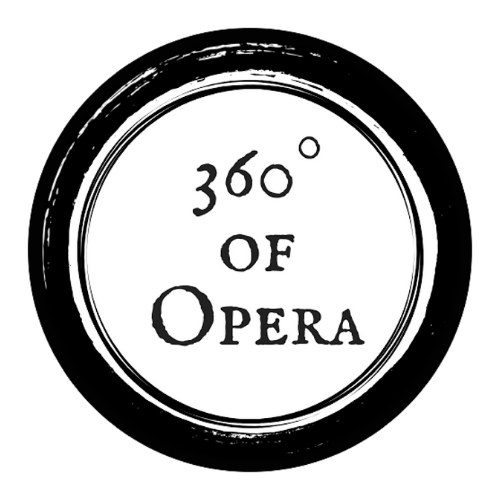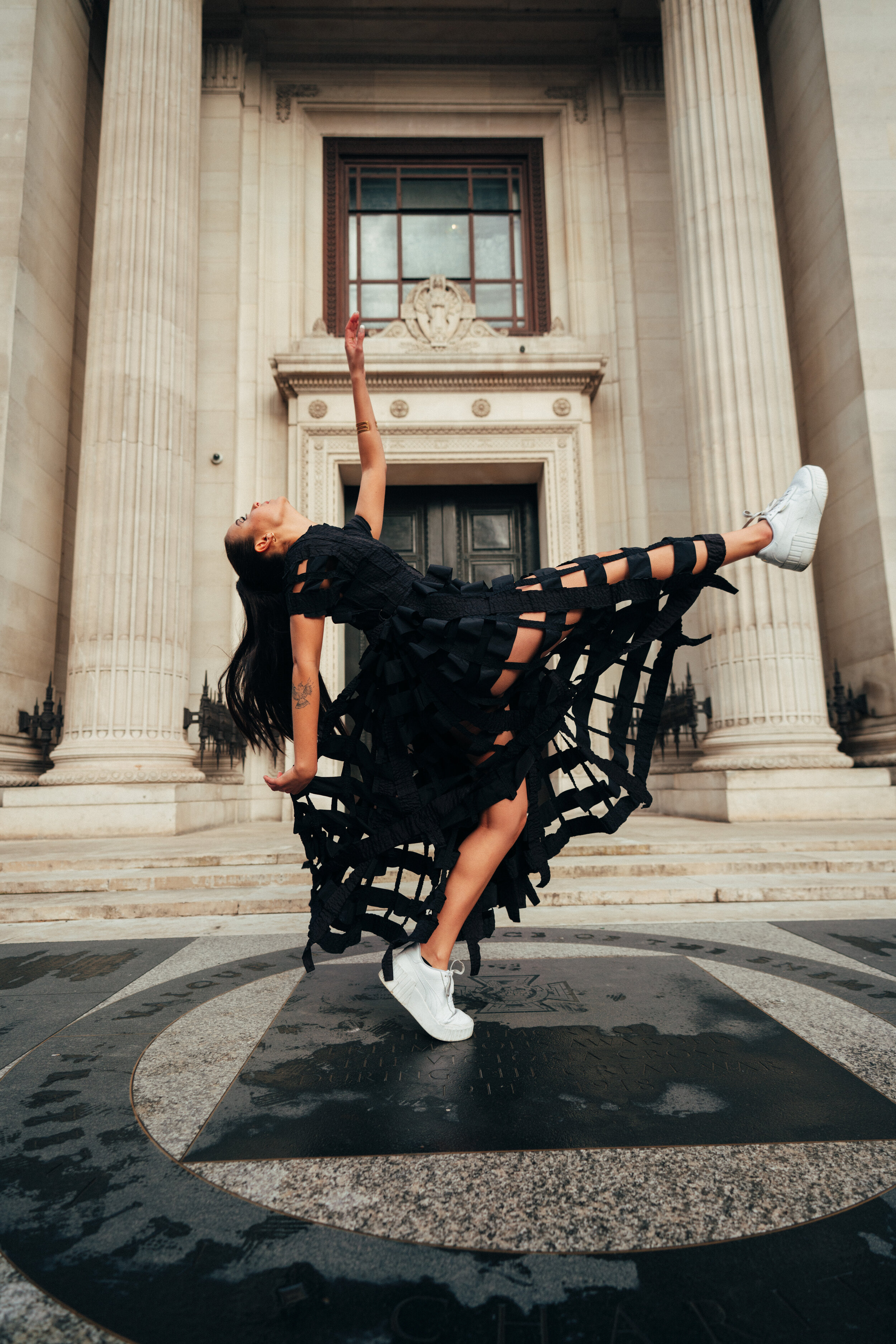Some Birds Are Not Meant to Be Caged
A #360ofOpera interview with Claudillea Holloway written by Yutong Yang.
She’s a fashion savvy girl living her best life, rocking her sequin outfit and crop top. She’s a fiery diva under the spotlight, blowing your mind with her effortless high notes, tempestuous eyes, and mischievous smile. In the case of our leading lady, she can be both and more — Claudillea Holloway (@claudillea) has never hesitated to embrace the spirit of And. This Angel With a Shotgun took the stage by storm with her rendition of the classic “Paint It Black” in 2020 on The Voice UK, and I’ve been Stanning her ever since. Therefore, I DMed her as soon as she dropped her latest hit “Habanera,” and was ecstatic when she said yes. Now … let’s dive right in!
1. Anyone who’s listened to your original remixed version of the “Queen of The Night Aria” would find it hard to define you or your music —
Thank you! I appreciate that statement of being hard to define, as I feel society puts so many restrictions on us by forcing us to try and define who we are — keeping us in a neat little box so we can be easily “understood.” For me, music is music, it doesn’t need a definition or genre.
2. Please tell us a little about your educational background, and why you took the road less traveled by!
I’ve always appreciated many different kinds of music, and wanted to be able to sing all styles, so I pursued an education/degree in classical voice, studying at Interlochen Arts Academy and then MSM. I dedicated 8 strong years to studying classical voice/opera (at one point I had hopes of a career on the opera stage). However, I felt very constrained within the walls of a music conservatory, especially when it came to exploring the different sides of my voice, so when I graduated, I went full throttle into exploration.
3. How would you introduce “OPPOP” to someone who’s curious? Why is the earworm “Habanera” from Bizet’s Carmen perfect for such adaptations?
Opera, at the end of the day, was the “pop” music of its time, and Bizet was so ahead of his time; writing Carmen because of his frustration with the opéra comique genre, finding it stuck in its ways and not moving forward … so ‘OPPOP’ is a result of me feeling a similar frustration, and wanting to blend genres together, but in a different, more contemporary way than is typically done in the familiar crossover 'popera' genre. The musical theme of “Habanera” still lives in today’s world; everybody knows it. Most don’t know where from, but they do, as it has been used many times in pop culture. Therefore it made sense to adapt it and switch it up, because it would be slightly familiar to these new audiences who don’t typically listen to opera.
4. I noticed some bold colors in the music video, especially red and black. What do they stand for?
When deciding on our colours and themes in the music video, I wanted to pay homage to the theme of red originally used in the opera, but also play on the themes that both red and black evoke: fire, passion, power, courage, danger, strength, rebellion, evil and fear (all themes within the opera).
5. How is your interpretation of Carmen different from what we’ve seen before? How did you incorporate your understanding into the music video?
Carmen as a character is such a force and has so many layers to her, but often when presented, is reduced to just an exotic/sensual object — womxn today are often still reduced to playing a specific role, so through the imagery in the music video, I wanted to show the many layers and roles we can have. We can be the demure, gentle Micaëla, while also being independent, strong, sexually-liberated etc … Although the Carmen of the 19th century could not exist back then (hence why she had to die), I’d love to think we are that much closer to a world where she could exist today.
6. How do you adapt songs with the modern social context in mind, and perhaps from a feminist perspective?
As much as I would like to reclaim our narrative through the performance of full opera works, I am aware that would be tremendously difficult, and that’s partly why I have gone down the route I have — changing it on a song-by-song basis. For example, in another flipped aria that will be coming out in the not too distant future, I changed 2 or 3 words that take back our feminine power and give it a 21st century perspective.
7. There’s a lot of female competition and aggression going on in the original opera Carmen, but in the music video of “Habanera,” we see womxn teaming up and having each other’s back, even potential queerness.
Carmen is set in a man’s world. I believe that today, we still live in a man’s world, where womxn are pitted against each other, so deeply that it happens on an almost subconscious level … even for us womxn who actively want to fight it. The media and social media play a huge part in this. I wanted to create a world in the music video, where we do not compete, but are powerful together, lifting each other up, juxtaposed with the opera.
8. I noticed some wonder womxn on your list of collaborators! Please tell us a bit more about how you work with them!
Unfortunately the music world is heavily dominated by men, and I was finding myself to be the only womxn in the room when I was recording my upcoming material; so when it came to creating the music videos for my upcoming releases, I wanted to be really intentional about working with other powerful ladies and to have the rooms be filled with more of us. Hence “Habanera” was directed by the phenomenal Rebekah B (@rebekahbcreative), and my next music video is also directed by an amazing female director with a predominantly female/queer production team.
9. “Habanera” lit our world on fire!! What’s next?
Thank you so much!! I have a number of releases and collaborations that will be coming out before the end of the year, a mix of self-written songs and remixed arias, paired with some kick-ass music videos. I’m hoping that once the world returns to some sort of new normality, I can get on the road, and bring my live music to different parts of the globe. In the meantime, I am writing new material, continuing to push myself beyond where I think I can go musically.
10. What’s it like choosing this crossover career? What message do you want to send to the world through your work?
It’s not an easy road, especially as I am self-managed and independent, but I am absolutely loving the ride and learning so much every single day. Through my music, I want people, especially young people to realise they can do whatever they want, and they don’t need to be/do just one thing, and through my journey of sharing my music (a mix of flipped arias and originals), hopefully I introduce this beautiful old art form to an audience who would otherwise not have access to/understand it. The other day I received a video of a 4 year old girl singing and dancing along to “Habanera,” imitating the words and sounds so perfectly (despite not knowing any French), and THAT lit my world on fire, and reaffirmed why I do what I do.
To be honest, I wasn’t quite sure how Claudillea would work her magic with “Habanera” — I mean, it’s way too well-known! So when I fully engaged with the music video, I was happily surprised by her success at capturing the essence of the aria And adding her own layers. Going through her list of contributors, I’m confident that with this Dream Team by her side, she is walking with an army.
Womxn like Claudillea inspire us to dream big and aim high. These rebellious birds are slowly yet steadily reclaiming our narrative, and clearing the sky for fledglings, without fear of ruffling or scorching a few feathers. As I played her soaring vocals on repeat, I could not help but think of this observation by Stephen King:
Some birds are not meant to be caged, that's all. Their feathers are too bright, their songs too sweet and wild.
Claudillea Bio:
No box can contain the artistry that Claudillea exudes. She has an innate wonder for the world and people around her; being that she has lived in various countries and experienced diverse cultures her entire life, no one place is home to her. The culmination of these influences expands beyond just culture - the music Claudillea creates is genre bending. Her unique blend of classic opera singing techniques with pop, trap, hip-hop and EDM music, what she calls OPPOP, made her a popular contestant on the UK’s The Voice in 2020. Her goal as an artist is to not only encourage people to explore beyond what they are comfortable with, but to know they do not have to live their lives confined to a single box.
Having opened for classical group Il Divo in 2018, Claudillea made waves in 2020 after earning a place on The Voice UK, first on Team Meghan and later stolen by Will.I.Am (@iamwill).
Originally from Cambridgeshire, but raised in Borneo, Malaysia, Claudillea’s multicultural upbringing gave her a global perspective and a sense of limitlessness. She was awarded a scholarship to study classical voice at Michigan’s Interlochen Arts Academy in the USA, and later went to the Manhattan School of Music in New York to get her BMus in Voice. Upon graduating, Claudillea starred in the Off-Broadway show Whiskey Pants: The Mayor of Williamsburg. Now based in London, Claudillea is focused on making operatic vocals more accessible.






